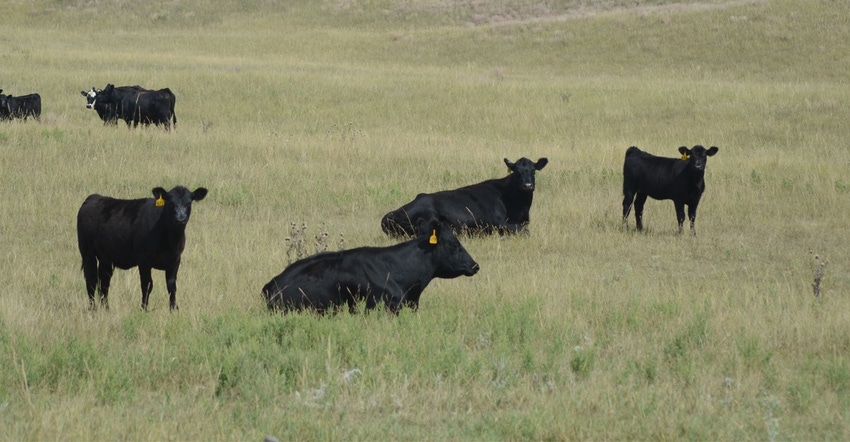November 2, 2017

Evaluating ranch records is not an easy task, but by taking the time to do it, producers will have a better handle on their businesses. Even with the slow rebound in the cattle market, producers still need to be on top of their game to stay in it.
According to Nebraska Extension educator Aaron Berger, it all starts with evaluating the entire operation to see where changes could be made. "I would build a business model and know it," Berger tells producers. "I would determine who my customer is, and what I could do to get an advantage over my competitors so I can make money in the business," he says.
Understanding the financial position of the operation is crucial to staying in the game. Berger recommends using a balance sheet. Income and cash flow statements are also important. "As much as I hate bookwork, it is important to tackle jobs like this when you are at your best, not after you have spent the day hard at work and are tired," he says.
The most important step in evaluating the operation is breaking it down into enterprises. For example, one ranch may have owned and rented land, a cow-calf operation, hay, oil and hunting. "Ask yourself where value is being created," Berger says. "Be honest with yourself and evaluate whether the cows can pay fair market value for the grass you have, or if you would be money ahead to sell the cows and rent the grass to someone else. Evaluate each enterprise this same way."
Berger acknowledges it is hard for some producers to ever consider selling their cattle. If that isn't an option, maybe there are things that could be changed to make them more profitable. "If you raise replacement heifers, and develop them into a bred heifer, after you evaluate the costs to do that, you may find it is more profitable to move to a terminal sire program or buy replacements," he explains.
Evaluate direct, overhead costs
Overhead costs, like labor and equipment, don't typically change based on numbers. "If I add 100 cows to the herd, I probably don't need a new pickup, a new calving barn or another stock trailer," Berger says. "Overhead costs don't typically change unless a unit of labor is added," he notes.
Direct costs change for each unit added to the operation. Examples are ear tags, feed and mineral. In the cattle business, Berger says producers typically have more control over costs than revenue. He identifies the top three costs as feed, cow depreciation and overhead. "Anywhere from 50% to 65% of costs in a ranching operation are usually feed," he says. "That is why it is important to determine what fair market value is for pasture if it was leased to someone else."
Berger tells producers grass rental rates in Nebraska average $55 to $65 a month per pair. "That is equivalent to $92 a ton of air-dried forage, assuming the cow weighs 1,200 pounds," he says. "I never thought I would say this, but it is almost to the point where you can dry-lot a cow cheaper than grazing it, based on $100 a ton for distillers and $80 a ton for alfalfa hay," he states. "For some producers, they can dry-lot or take a cow to cornstalks cheaper than they can rent grass."
During tough times, there are also management improvements producers can make to improve efficiency. Building fence and adding water sources will improve the productivity of the grass and provide more grazing for cattle.
Producers shouldn't be afraid to utilize electric fence, Berger continues. "I would recommend finding someone who does a good job putting up and taking down electric fence, and learn from them."
With many options available for maintaining a cow, Berger tells producers to match the cow and the available production system to the resources that are available.
Clark writes from Potter.
About the Author(s)
You May Also Like




